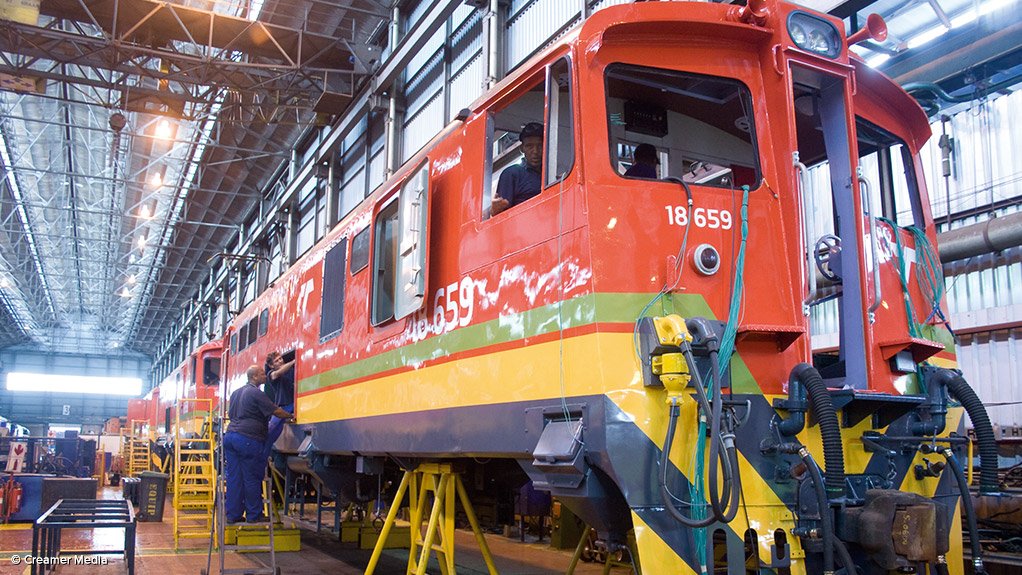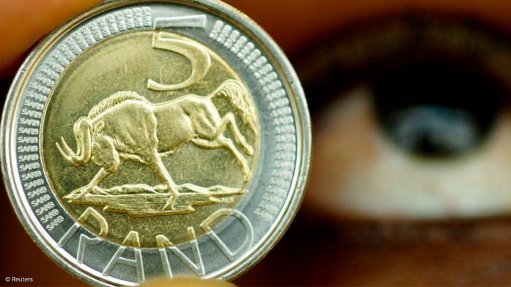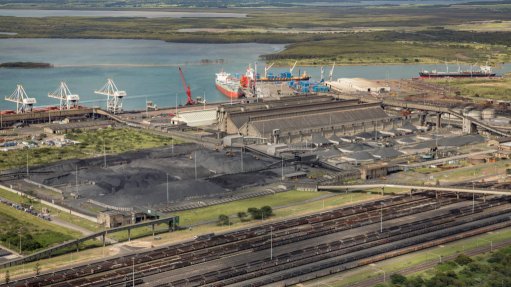No local-content verification of Transnet locomotives conducted yet, SABS confirms
The South African Bureau of Standards (SABS) has confirmed with Engineering News Online that it has not conducted any verification of local content in the 1 064 locomotives being acquired by Transnet and that it also does not have an agreement with Transnet to do so.
Transnet awarded the R50-billion contract, dubbed ‘10-64’, to four suppliers in 2015. General Electric is supplying 233 diesel locomotives and China North Rail 232 diesel locomotives, while China South Rail (CSR) and Bombardier Transportation (BT) are supplying 359 and 240 electric locomotives respectively.
Instruction notes issued by the National Treasury, in line with the Department of Trade and Industry’s (DTI’s) designation of locomotives for local procurement, state that the local content for electric locomotives should be above 65%, while the threshold for diesel locomotive has been set at 55%.
Local content under the designations is supposed to be verified by the SABS using the SATS 1286:2011 technical specification. However, SABS’s Local Content Office operates on a cost-recovery basis and DTI has confirmed that funding for the Transnet locomotives verification has emerged as a “serious problem”.
SABS tells Engineering News Online that it has had several engagements with Transnet and the four original equipment manufacturers (OEMs) in a bid to ensure the local-content verification is performed, but that “no progress has been realised”.
The DTI tells Engineering News Online that it is currently reviewing, with the National Treasury, funding options for local-content verification, but provides no timeframe for securing such funding. “This will have to be done either through fiscal transfers or a cost-recovery model from successful bidders.”
The Centre for Competition Regulation and Economic Development (CCRED), which has been monitoring delivery of local content in the locomotives programme, confirms that funding is a key constraint. “The funding, or rather the lack thereof, to carry out this task has been the main impediment to progress,” CCRED senior research fellow Dr Rod Crompton tells Engineering News Online.
However, Crompton also questions why SABS would need an agreement with Transnet or the OEMs to conduct the verification, given that the SABS was appointed by DTI in 2012 as the official agent to carry out verification of locomotive localisation. “The fact that the SABS seems to think that it needs permission and that such permission has not been forthcoming from those who are to be inspected, does not portend well for the outcome of South Africa’s attempt at locomotive localisation.”
Crompton argues that any instrument of government intervention, particularly in industrial strategy or policy, is only as good as its policing. “Thus to commence with such an intervention without a means of verification is a serious lapse in design or judgement, because of its many adverse consequences.”
The four OEMs are pressing ahead with contract execution, which is likely to mean that the 10-64 locomotives will be delivered before the funding for verification is secured. It has been reported previously that Transnet expects the locomotives to be delivered before the end of 2017.
“Delays in activating a verification agent, with the increasing backlog that accompanies it, creates the space within which suppliers may dispute rule interpretations in future. It also creates space for those that will argue that ‘what’s done is done and can’t be undone’. The guilty may be expected to plead that they were not given adequate guidance at the time and cannot be judged with the benefit of hindsight,” Crompton cautions.
Transnet states that, while the responsibility for verifying local content has been assigned to the SABS by the DTI, it has appointed PwC to conduct ongoing assessments of whether supplier development obligations were being met with regards to the 10-64 contract.
In fact, Transnet CEO Siyabonga Gama insisted in early July that local content was rising, while noting that not one of the four OEMs has been issued with penalty letters relating to under delivery on local-content commitments.
In terms of the 2015 contract, CSR has committed to supplying 40 of the 359 locomotives from China, with the balance to be produced in South Africa. CNR, meanwhile, has contracted to produce the first 20 units in China and the remainder of the 232 domestically. In line with its contract, GE built six locomotives in the US and is assembling the balance of the 233 in South Africa, while BT has committed to produce all 240 locomotives domestically.
Transnet reported in July that it had received 240 locomotives under the 10-64 programme as at the end of June. Of that, 139 locomotives had been supplied by GE and 101 by CSR. It had also received two locomotives each from CNR and BT, which were undergoing acceptance testing.
In a separate, but related development, Transnet has appointed Werksmans Attorneys to oversee a board-level probe into allegations of corruption relating to its purchase of locomotives from CSR.
Opposition party the Economic Freedom Fighters has laid criminal charges against current and former Transnet executives in relation to the procurement of 554 electric locomotives from CSR across three contracts. However, the bulk of the allegations centre on the purchase of the 359 electric locomotives under the 10-64 contract.
A story by amaBhungane and Scorpio arising from the #GuptaLeaks emails suggests that CSR is paying a facilitating fee to a Hong Kong-based company owned by Salim Essa, who is alleged to have strong ties to the controversial Gupta family. The report indicates that Essa’s company is receiving R10-million for each R50-million locomotive that Transnet is buying from CSR.
The Werksmans probe is expected to be finalised in September or October.
Article Enquiry
Email Article
Save Article
Feedback
To advertise email advertising@creamermedia.co.za or click here
Press Office
Announcements
What's On
Subscribe to improve your user experience...
Option 1 (equivalent of R125 a month):
Receive a weekly copy of Creamer Media's Engineering News & Mining Weekly magazine
(print copy for those in South Africa and e-magazine for those outside of South Africa)
Receive daily email newsletters
Access to full search results
Access archive of magazine back copies
Access to Projects in Progress
Access to ONE Research Report of your choice in PDF format
Option 2 (equivalent of R375 a month):
All benefits from Option 1
PLUS
Access to Creamer Media's Research Channel Africa for ALL Research Reports, in PDF format, on various industrial and mining sectors
including Electricity; Water; Energy Transition; Hydrogen; Roads, Rail and Ports; Coal; Gold; Platinum; Battery Metals; etc.
Already a subscriber?
Forgotten your password?
Receive weekly copy of Creamer Media's Engineering News & Mining Weekly magazine (print copy for those in South Africa and e-magazine for those outside of South Africa)
➕
Recieve daily email newsletters
➕
Access to full search results
➕
Access archive of magazine back copies
➕
Access to Projects in Progress
➕
Access to ONE Research Report of your choice in PDF format
RESEARCH CHANNEL AFRICA
R4500 (equivalent of R375 a month)
SUBSCRIBEAll benefits from Option 1
➕
Access to Creamer Media's Research Channel Africa for ALL Research Reports on various industrial and mining sectors, in PDF format, including on:
Electricity
➕
Water
➕
Energy Transition
➕
Hydrogen
➕
Roads, Rail and Ports
➕
Coal
➕
Gold
➕
Platinum
➕
Battery Metals
➕
etc.
Receive all benefits from Option 1 or Option 2 delivered to numerous people at your company
➕
Multiple User names and Passwords for simultaneous log-ins
➕
Intranet integration access to all in your organisation





















